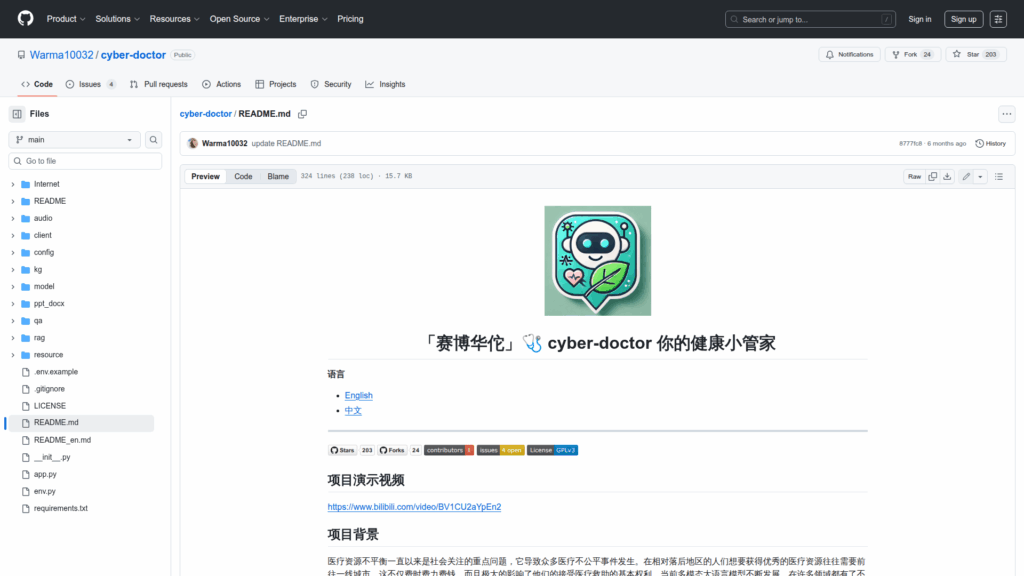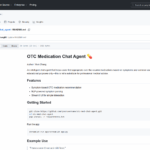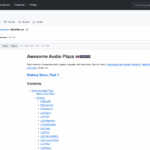cyber-doctor
Basic Information
cyber-doctor is an open-source multi‚Äëmodal health assistant project that integrates large language models, retrieval augmentation and knowledge graph techniques to provide basic medical triage, medical record analysis and professional Q&A. The repository bundles a Gradio web interface, multi‚Äëmodel orchestration and connectors for several model providers so users can run a local or API‚Äëbacked assistant that accepts text, images, audio and uploaded files. It targets users who care about personal health and developers who want to adapt a medical domain agent to other specialties by swapping knowledge bases or models. The project emphasizes deployment options, configurable APIs, RAG workflows and optional Neo4j knowledge graph support to improve domain accuracy.








